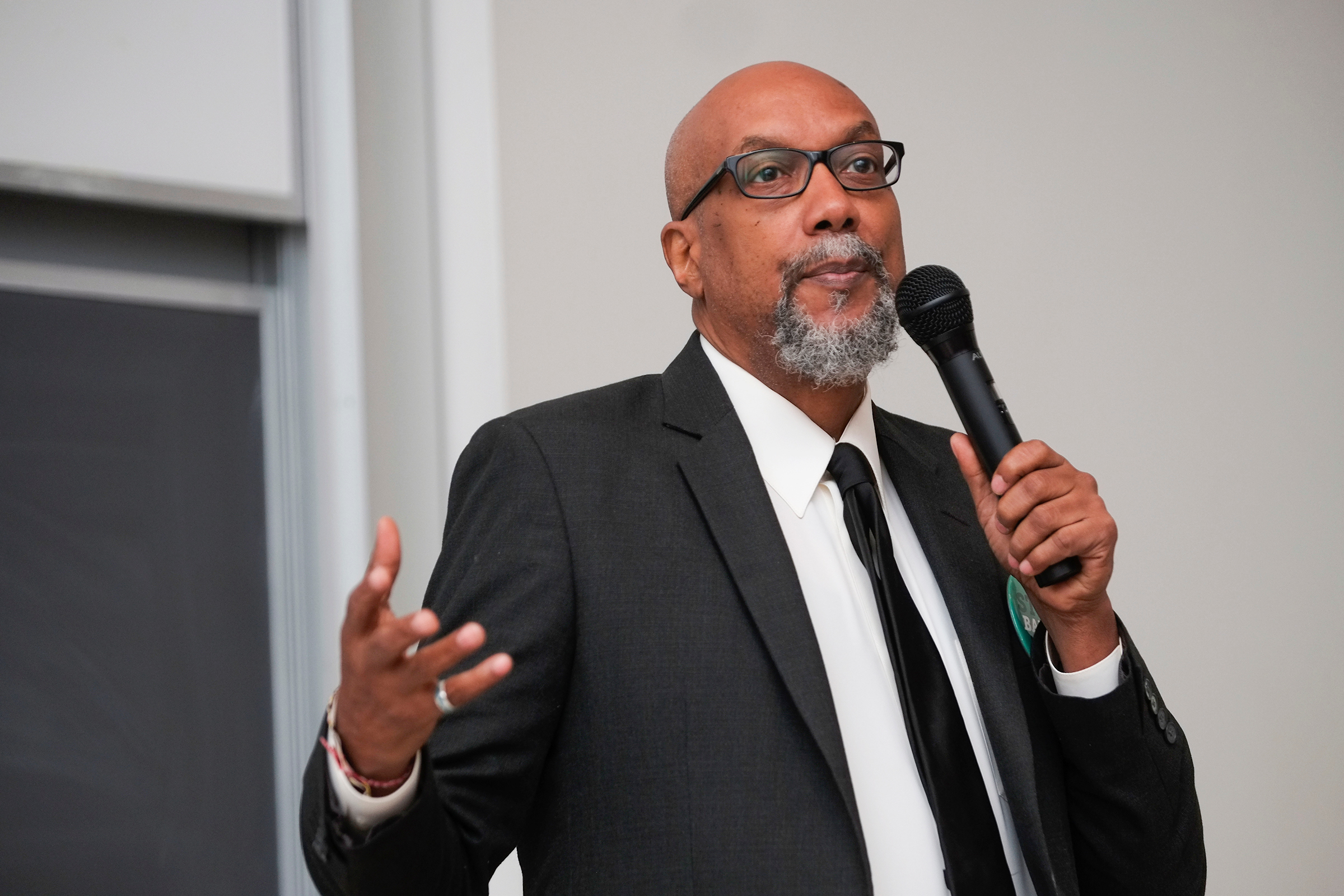
![]() [hr]
[hr]
Green Party vice presidential candidate and international human rights activist Ajamu (A-ja-mu) Baraka (Baa-raa-kaa) discussed human rights and the Green Party platform in a partially filled auditorium of students and local supporters in Jackson State University’s College of Liberal Arts on Wednesday morning.
On casual observation, Baraka, who was selected by Green Party presidential candidate Jill Stein, appeared dressed to stomp the campaign trail in an ebony business suit, white shirt and dark tie.
But, his clean-shaven head, salt-and-pepper goatee and heavy-black rimmed glasses suggested more Malcolm X than average politician.
“I’m here to talk about human rights, and to put this issue in its proper perspective, and to share why the campaign is centered around the idea of human rights,” said Baraka, who is also a geopolitical analyst.
Canvassing the conditions and struggles of the people he encountered during his nationwide travels, he identified the following mutual and observed themes:
- Homelessness
- Disappearance of jobs
- Inability of people to live and exist with dignity
- Corporations poisoning communities with toxic waste
- No health insurance or under insured
“The fact that we go to so many communities and they are food deserts. There is no food. You have to get in a car and drive for miles to be able to shop and when you get to those places you find that there is inferior and very unhealthy food in those places,” Baraka said.
His words seemed to be an indictment of a country that leads the world in food waste, disposing of millions of tons annually, according to research. Additionally painting a picture that emerged more third world than first, Baraka stated that in 2016 all people in the United States still do not have access to “something as basic as water.”
“All of these issues, all of these things that are lacking in the individual and collective lives of people. These are in fact human-rights violations, and we want people to understand that,” he said.
Revealing hints of the ideologies that may have led to his branding as radical and controversial by mainstream media, Baraka asserted that transcending the limitations of U.S. Constitutionalism is one outcome for those who place civil liberty issues and violations within the framework of human rights.
He wants people to understand the importance of expanding beyond the parameters of U.S. Constitutionalism, because the problems he mentioned, like homelessness and loss of jobs, “are not recognized as fundamental human rights by the U.S. Constitution and by political practice here in this country.”
The economy, health care and housing are issues traditionally entangled in political discourse. Baraka acknowledged a common counter response to his party’s position is that people have “no right to a job” and because the American economy is driven by market forces, people must compete and where a person lands in said market environment is reflective of an individual’s personal efforts.
Job availability, access to health care and preventive medicine, ensuring a person’s right to be healthy and supplying vital housing are some of the core views at the root of the Green Party agenda.
Baraka warns of the rising impediments if people relieve the government of any obligation to meet the most primitive thresholds of human survival. He explains that not viewing simple necessities as a human right narrows the range of appeals a society can make. “You undermine the morality of your demands, and you disconnect from what’s happening around the world,” he said.
A disconnection from global concerns and challenges is an added outcome Baraka finds a derivative of U.S. Constitutionalism. “You undermine your ability to understand that the kinds of human-rights violations in this country are also connected to the kinds of human-rights violations people are facing around the world,” he said.
Baraka deemed an ability to view life from beyond a “U.S. lens” as an essential and significant development that enables a fresh perspective, correlating the human rights violations in the U.S. with those in the rest of the world.
“So having a human-rights lens and applying that lens, not only to our reality in this country and our realities globally, is fundamentally important. And that lens, is the kind of lens that we have adopted and embraced in our campaign in this country,” said Baraka.
He then announced that “The Stein Baraka campaign embraces the belief that for a society to be a humane and civilized society, for society to have a value that will result in our ability to fully develop ourselves as human beings we should have a commitment to the principles of human rights.”






